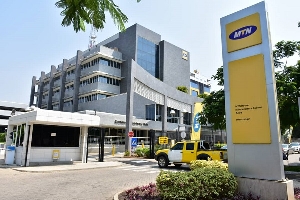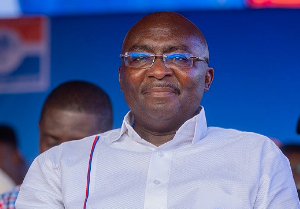INTRODUCTION
When Johan Kepler, Copernicus and Galiliel Galileo pontificated some centuries ago that the sun is the centre of our universe, they were thought to have blasphemed and were declared heretic because of their heliocentric instead of the widely held geocentric view. The Pope was supposed then to have monopoly of knowledge and to have answers to secular, spiritual, scientific and mundane affairs, you name it. Now we know better that the nine planets revolve around the sun in our solar system. In 1494, Pope Alexander Borgia II by an ecclesiastical edict demarcated the world into two hemispheres for the then two superpowers in the Iberian Peninsula, Portugal and Spain (now both are among the financially embattled PIGS countries of Europe). These two countries had mastered the secrets of sailing and navigation under imperial patronage. In deed, they were thassalocracies or sea powers with formidable naval and merchant fleets and flotilla. The western hemisphere was ceded to Spain and declared a no-go area for Portugal. So also was the eastern hemisphere ceded to Portugal. That meridian which was arbitrary drawn on the world map from north to south does not correspond to our current Greenwich Meridien which passes through London and Tema. It was far to the west, passing through the Azores Island in the North Atlantic, some 800 kilometers west of Portugal. After the defeat of the Spanish Armada by Britain in 1588, and the ascendancy of other European thassalocracies such as Holland, France, Denmark and Sweden, the balance of power calculus changed as the European powers jostled one another as if in a game of dancing chairs. Earlier in 1442, the Portuguese had ventured out to explore beyond Cape Bojador near Cape Verde, trying to belie the myth that beyond that Cape, they would fall off into an abysmal chasm or that they would encounter a sea full of monsters or a boiling sea. At that time, people believed that the earth was flat and not spherical. However, in 580BC, Hanno the Carthaginian had already circumnavigated Africa by sailing clockwise around Africa, setting off from the Red Sea in Egypt. By 1472, the Portuguese first set foot in the then Gold Coast at Abrobiano near Komenda. Their progressive government, led by Kings John and Henry the Navigator of Sagres, financed expeditions led by explorers such as Fernando Gomez, Pedro d’Escobar, Vasco da Gama, Bartholomew Diaz, and Diago d’ Azambuja, among others. In Spain, Queen Isabella was the matron of Christopher Columbus and others. After many wars of attrition and scramble, following the Berlin Conference of 1888, the British, by their superior diplomacy, had gained supremacy in the then Gold Coast. By 1910, the British had gained control and annexed territories straddling the littoral of the east Atlantic. In most areas of southern Africa, thanks to the efforts of British explorers, missionaries, adventurers and empiricists such as David Livingstone, Cecil Rhodes and Henry Morton Stanley, the British acquired the juiciest lands rich in flora, fauna and precious minerals. The map of the world was redrawn with London as the undisputable capital of the world and the British Empire was painted in red. From time immemorial, many attempts had been made to project the shape of the world in diverse forms based on travel reports and general conceptualizations. Plato, Anstotle, Anaximander, Ptolemy and the ancients had their own conceptions of the land masses. With time, various cadastral or map making devices were employed, notably by scholars in Holland, Italy, Germany and other European countries. Some of these map making projections include Mercator’s Projection, Mollweide’s Projection, Samson Flamsteed Sinusoidal Projection, Conical Projection, Bonne Projection, among others. Our current map of the world with grid references of eastings and northings encapsulates a combination of some of these techniques to produce equal-area, accurate and less biased maps which also have visual appeal. A lot of compromises go into map making as each world map produced, has some defect because of its particular emphasis or purpose. However, with 3D computer technology and remote satellite sensing techniques, our maps are now accurate. The use of grid reference enables us to locate places accurately on the face of a 3D earth. Longitudes are imaginary lines drawn on maps from north to south which converge at the poles and they have their widest distance apart at the Equator at 111km (1/360 x 40,000). The circumference of the earth at the Equator is 40,000km and therefore, the radius of the earth at the Equator is approximately 6364km. Latitude is an imaginary line on a map drawn from west to east and they are parallel to each other. While all longitudes have the centre of the earth to be their centre, only the Equator is the latitude or parallel which satisfies this condition. The other latitudes such as 23½ºN (Tropic of Cancer), 66½ºN (Arctic Circle) are called smaller circles. The earth is not a perfect sphere as the equatorial diameter is longer than the polar diameter. This is due to some forces which led to the miss-shaping of the earth and the inclination on its axis as well as to its orbit around the sun. The earth’s irregular spherical shape is called geoid or an oblate spheroid or an ellipsoid of revolution or pear-shaped. Now with satellite or global positioning satellite (GPS), we can have accurate bearings wherever we are and we can draw accurate maps. Surveyors have now not much problem with triangulation as the Germans have developed advanced computerized equipment to take the tedium out of that once daunting task.
LOCATION OF TEMA IN GHANA
Tema in Ghana is located on longitude Oº or the Greenwich Meridien and on latitude 5º north of the Equator. It is the closest land settlement nearest or closest to the centre of the world where the Equator and Greenwich Meridian meet at coordinate (O, O). Libreville in Gabon is located on latitude Oº or the Equator and longitude 10º east. Thus, Tema is 555km north of the centre of the world which occurs on the Atlantic Ocean. Libreville is 1110km directly east of the centre of the world. From Accra to Libreville by a straight line joining them from the north-west to the south-east, the distance (using Pythagoras theorem) is 1241km. This can be covered by an aero plane in 2 or 3 hours flight. It is interesting to note that all the land areas equidistant from this centre of the world have struck oil. Port Harcourt in Southern Nigeria, Cape Three Points in western Ghana, and Equatorial Guinea and Gabon. Where next? It would be Liberia or parts of Ivory Coast or Sierra Leone, Cape Verde or even Senegambia. If you draw Concentric circles from the centre of the world, you will notice a radius further afield of oil producers such as Angola, Cameroun, Sudan, Chad, Libya, Algeria, among others.
GLOBAL CENTRALITY AND IMPLICATIONS FOR GHANA
Being at the centre of the world means a lot for Ghana politically, socially, religiously, strategically and economically. Ghana, like her former colonial master, Britain is at the cross- roads of the world. This means flying from Accra to any global capital should be more advantageous than from any other place on earth. When the 18th century lexicologist, Ben Johnson, defined the word network, he wrote, anything recusated and decussated at the interstices.” So what is in it for Ghana to be positioned stragically at this favourable global interstice or intersection? First, Ghana was the first black nation to attain political independence in 1957. Second, a Ghanaian was the first to obtain a doctorate in philosophy from Erfurt University in Germany in 1798 (Wilhem Amoo). Also a Ghanaian, late Dr Alex Quaison Sackey was the first black to chair the UN General Assembly (a MOBA). Ken Dadzie ( late) of UNCTAD was the first black to be seriously considered for the post of UN Secretary General in the 80s. Then Busumbrum Kofi Annan (a MOBA) became the first black to be elected as UN Secretary General. Major General Erskine was the first black to command all the UN Peacekeeping Missions. During the ignominious slave trade era, Kormantse slaves were singled out as the most stubborn and rebellious. On a negative note, recently Kwaku Adoboli has collapsed a Swiss Bank, UBS, to the tune of 2.3 billion dollars. Recently the Ghanaian economy is said to be growing at a Guiness Book of Records rate of 33.3% for the first two quarters of 2011. Unparalleled and unprecedented in the annals of economic history! Thus far, we can surmise that being the closest country to the centre of the world brings us both positive and negative vibrations, and we are the cynosure of all eyes. It is no miracle that Ghana is steadily attracting a lot of world media attention and thus bringing in much needed inward Foreign Direct Investment (FDI). See how foreign business scouts are flocking to Ghana in search of business opportunities and the influx of tourists and conference attendees from all corners of the globe. Many billionaires are buying estates in different parts of Ghana. In this regard, I will venture to surmise that land in Ghana in the foreseeable future is going to be a precious commodity to have, so people should invest heavily in it. Many multinational companies are now falling over themselves to relocate to Accra and other parts of Ghana. We as Ghanaians need to wake up fast from our slumber and be nimble on our feet to embrace the begging opportunities. If you are a basket weaver or a farmer or a tailor, take heart. Very soon you will be very happy as a lot of money is going to float around and you can make megabucks. Only work hard, be innovative and add more value to your product to bring it up to international standards in terms of promotion, packaging, positioning, presentation, quality and user-friendliness. Whilst our economy is about to take off into a steep climb up, (cf.W.W Rostow’s 5 stages model of growth), other economies elsewhere have reached stability zone in the clouds and perhaps they are beginning to decelerate and wing down. Ghana, being close to the centre of the world, is the hub of the world airline and shipping lanes and routes. See how the major airlines in the world have started flocking to Accra. This means we as Ghanaians should ready ourselves for take-off by strategizing and positioning ourselves in a global market niche to exploit opportunities. We should convert perceived threats and weaknesses into challenges which need to be overcome. People complain of foreigners taking over businesses and jobs. What are you an indigene doing with your leveraged position to beat the guest workers or anomie at their own games? You have home and first-mover advantages so what is your problem? Use your head, your skills and local contacts to push your business and capture more market share. We should avoid being insular, irredentist and xenophobic as we must be receptive to change, though we must guard our sovereignty and national identity from imposters and unwarranted intruders. We should change our mindsets and play the global game of being proactive, aggressive and bold risk-takers. We should be world class in stevedoring and demurrhage operations at the ports and harbours. We need to create friendly and conducive atmosphere for foreign planes and ships which land or dock at our facilities. We need sooner rather than later, bigger landing and docking facilities with the latest handling equipment. We need responsible and competent workers so that we become the Singapore of West Africa. With our strategic location alone, we can churn out billions of dollars in revenue from traffic passing through our ports of entry. We need to have fool-proof systems for our revenue collection points so that all revenues are properly accounted for to be used for national development. If we develop our infrastructure to world class standard, that will be a unique selling point for us to attract foreign investment. Above all, it is the nature of a people who make a country great. Ghanaians in general are genial, kind and welcoming to foreigners. That is our greatest asset. Let us continue our hospitality, portraying our warm. ‘Akwaaba’ attitude to foreigners.
CONCLUSION
Our access to the sea is a big plus for us as it reduces the cost of doing business overseas. Why can’t we revive the Meridian Hotel in Tema? Why can’t we have a planetarium built in Accra, Tema or Takoradi as a tourism showpiece like the Eiffel Tower or Houses of Parliament or Sydney Harbour View? Why can’t we have a university called Meridian University in Ghana? Why can’t we organize leisure cruises to the coordinate (O, O) where we can call it Meridian Ground Zero? Why can’t we set up in Ghana a famous Institute of Geography to attract eminent geographers from all parts of the world, and make it a centre of research excellence? Perhaps I can get a job there! Is Ghana the El Dorado or kind of treasure or Promised Land? Is Ghana terra cognito or incognito. Is Ghana terra firma?
Kwesi Atta Sakyi
Opinions of Saturday, 15 October 2011
Columnist: Sakyi, Kwesi Atta














